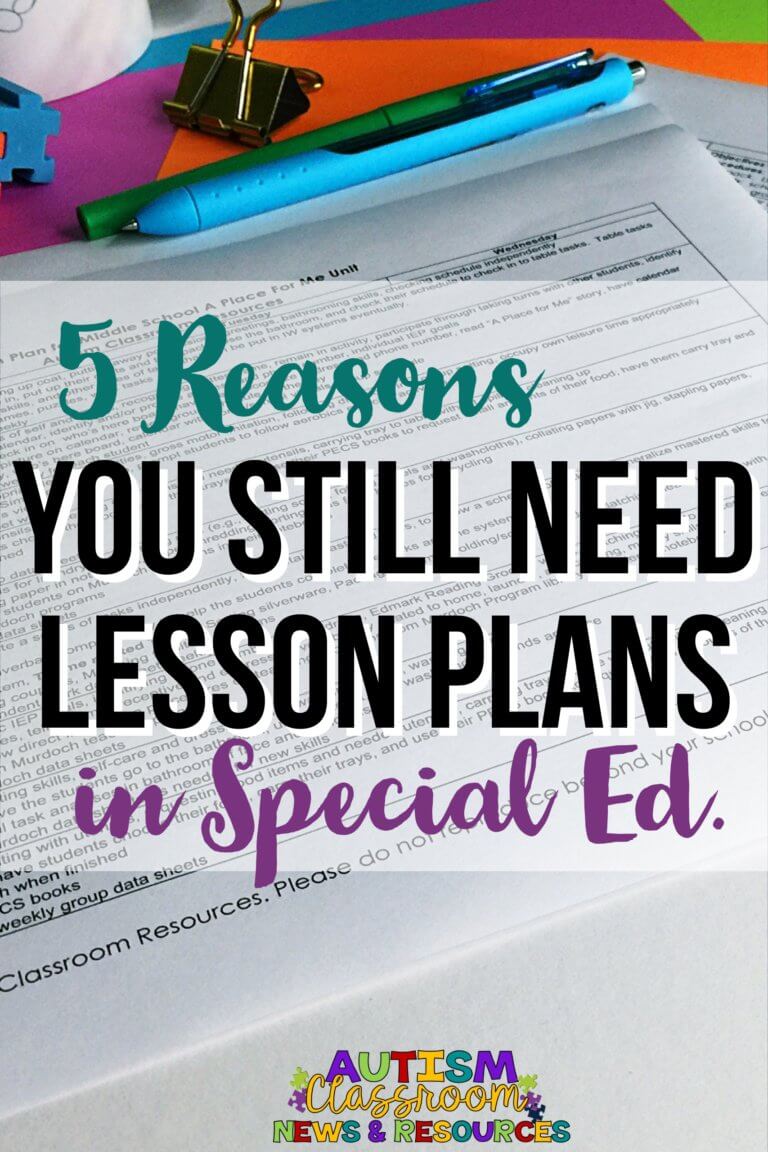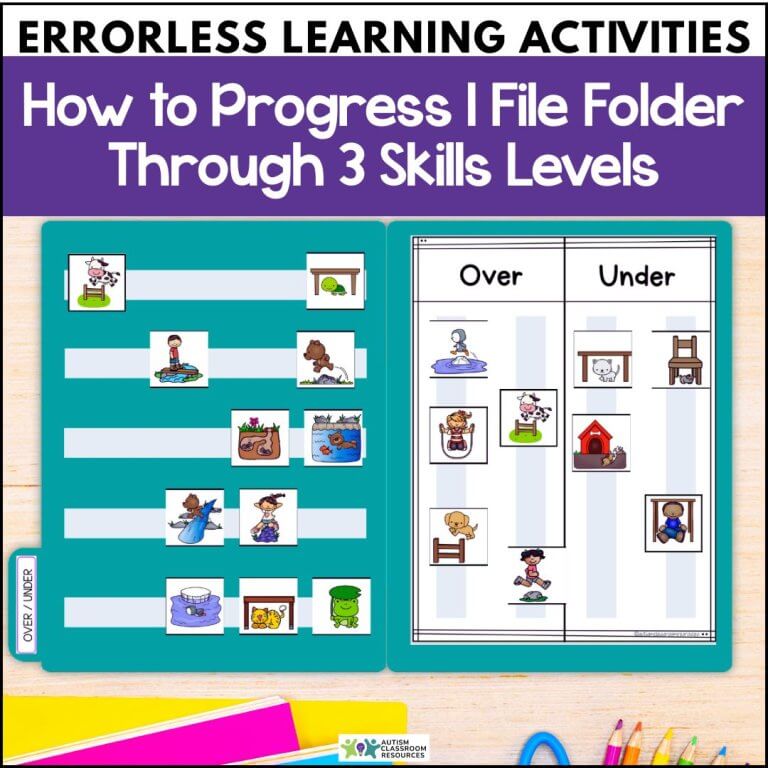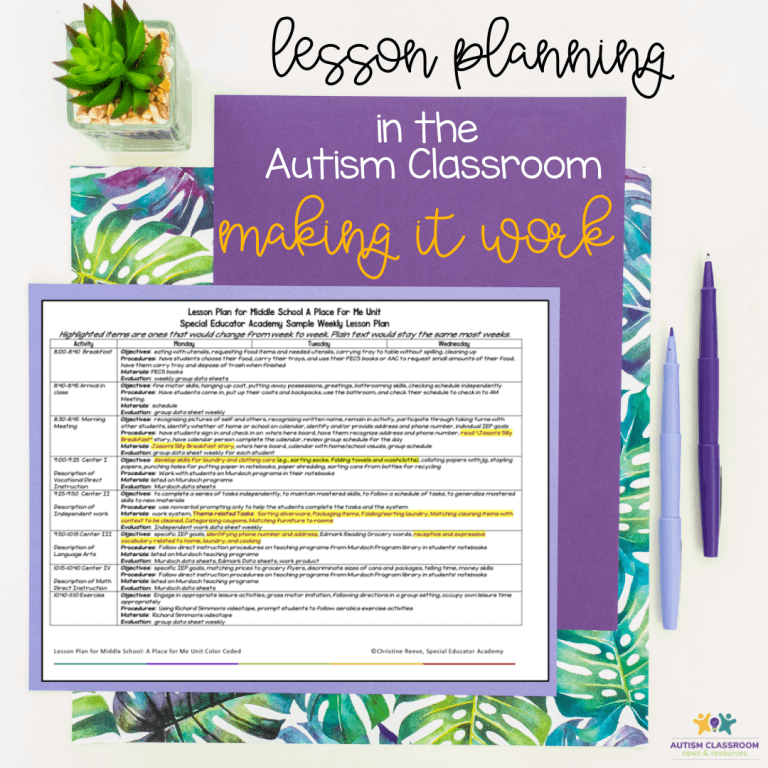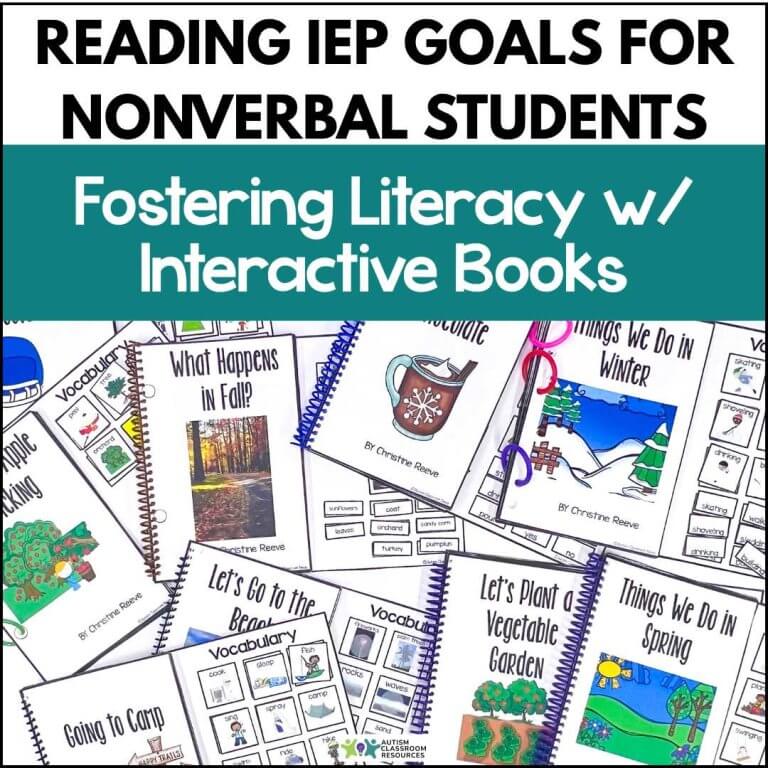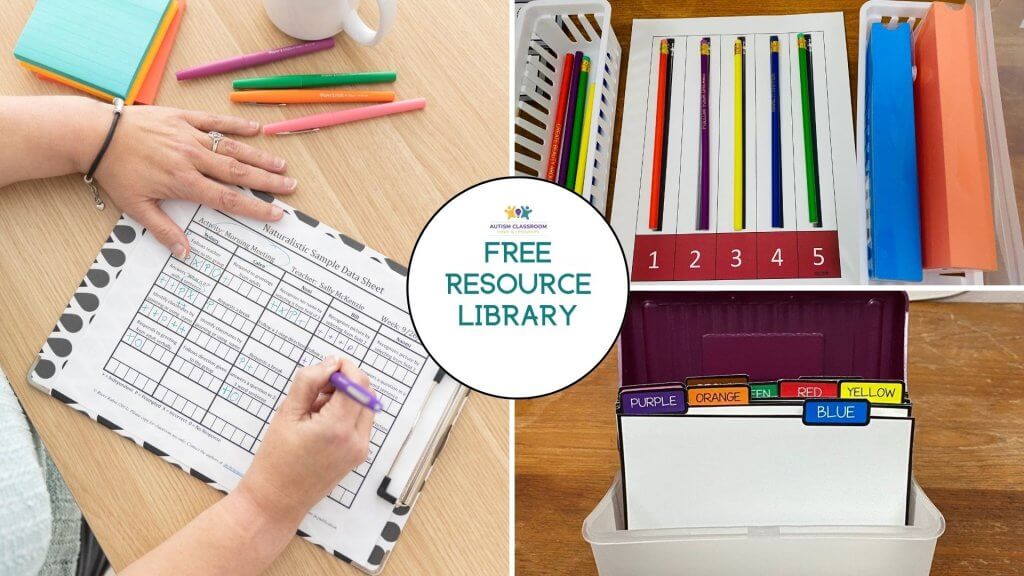If you are a special education teacher, or an administrator who supervises and supports special education, how do you feel about lesson plans?
I posed this question in a recent conversation with four friends who are special education teachers. Interestingly, they had some very different opinions about the question.
Two of the teachers said that that they are absolutely required to turn in lesson plans and couldn’t imagine teaching a classroom without them. The other two said that no one asks them about them and they don’t see the need for them. Both groups were pretty wed to their positions.
Clearly it’s a more complex topic than I initially imagined. Regardless of your stand on the issue, lesson planning is still a challenge in a highly individualized classroom. So, how can lesson plans be beneficial when everyone is doing “their own thing”?
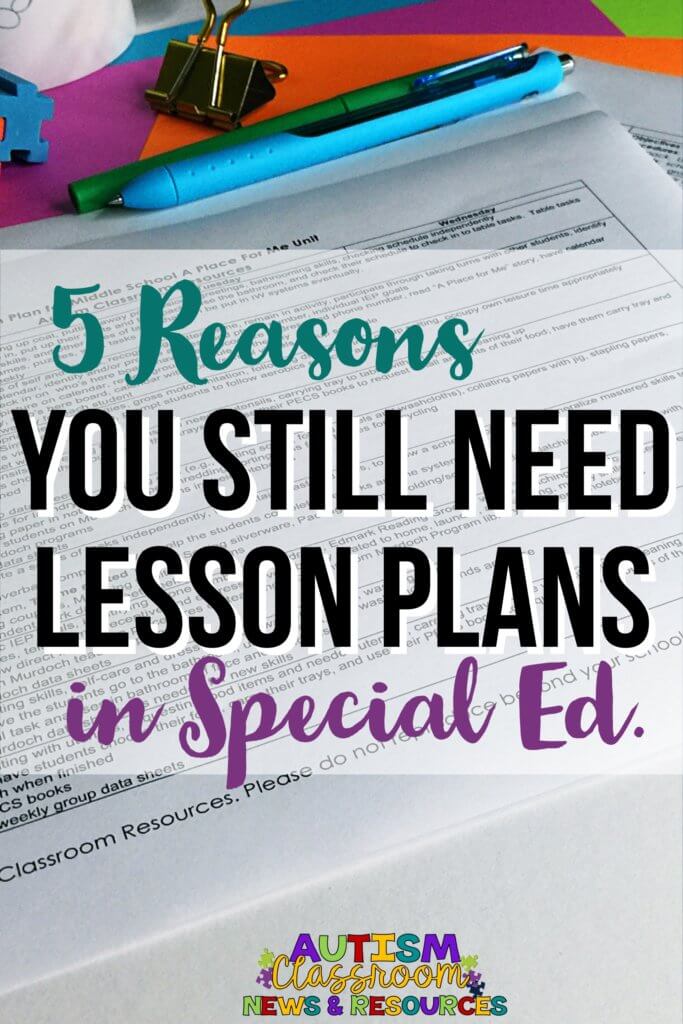
1. We Still Have to Plan Ahead
Some instructional activities stay the same everyday with the same goals and activities. These are typically driven by specialized curricula or IEP goals. For instance, the teacher teaches a combination of the scientifically based reading curriculum and the students’ reading IEP goals in small group reading centers.
The scientifically based reading curriculum have lessons progressing in a logical sequence to teach. And teaching is often guided by the progress of the student. For instance, one lesson will be continued or repeated until mastery is demonstrated. Only with that mastery would the teacher move to the next lesson.
However, with groups like morning meeting, the goals might be the same or similar from day to day. But the book read, songs sung, or vocabulary introduced might change daily or weekly. Lesson plans provide this information.
[socialpug_tweet tweet=”Giving directions to paraprofessionals, sharing with admin, and accountability. All reasons why we still need lesson plans in #specialed Thoughts?” display_tweet=”Giving directions to paraprofessionals, sharing with admin, and accountability. All reasons why we still need lesson plans in #specialed Thoughts?” style=”5″]
Similarly, goals in independent work focus through the year on teaching the student to complete a series of tasks on his own. However, the teacher changes the tasks to avoid monotony and continue to challenge the student. The teacher writes the lesson plans to give that information.
2. Students Work With Multiple Staff
Special educators collaborate with a ton of professionals to educate our students. From related service provides like PT, speech and OT to general educators and special subjects. Lesson planning is a tool for collaboration and co-planning. Using lesson plans from general ed. allows the special educator to pre-teach material prior to a student encountering it in the general ed. environment. That can help the student be more successful. Similarly, related service providers might work with the special educator to develop collaborative activities to push-in services in the classroom.
3. Lesson Plans Automate the Classroom
With written lesson plans, you can give directions to staff without having to stop at every transition and tell them what to do next. This way you can focus on teaching, not managing.
Paraprofessionals serve as lay instructors in special education classrooms. As such, they need training, direction, and guidance from the teacher to assure effectiveness. Lesson planning allows the paraprofessionals to know what goals to target with specific activities.
For instance, consider a student who is supposed to practice writing his name. A lesson plan tells the paraprofessional not to write it for him. Plans also assure that the tasks designated to the paraprofessionals are appropriate to their skills.
4. Lesson Plans Inform Administration
In a world of accountability in instruction, principals and administrators must more closely evaluate the work of all their staff. That includes special educators. Lesson plans allow the administrator to have a map of how the teacher is implementing the curriculum. And how they implement instruction of IEP goals, behavior plans, and more.
In addition, lesson plans guide administrators’ observations of the classroom so they are informed about the goals and intent of the classroom activities. This can help to plan when to observe and help them know what to assess.
Communicating to Families & Others
We cannot expect parents to be experts in how the IEP is implemented and the curriculum is taught. Certainly some have become so in their advocacy for their children. Nonetheless, schools have a responsibility to demonstrate how the IEP and curricula are implemented. A recent U.S. Supreme Court case emphasized the need for schools to demonstrate “appropriately ambitious” progress of students. Many view this court decision as a landmark for increasing the expectations for instruction and progress of students with disabilities.
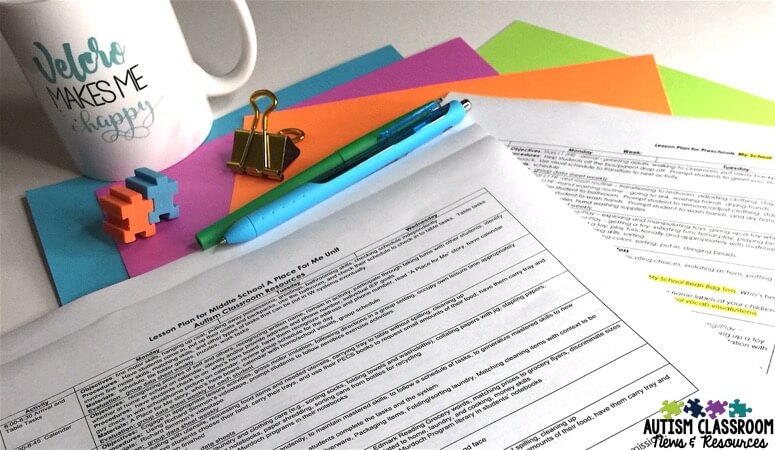
Lesson plans demonstrate to families, the state, and the court if necessary, that instruction based on the IEP and curricula. And you can show that they are planned to provide “appropriately ambitious” progress. Indeed, courts use lesson plans during due process hearings to determine if instruction was planned and appropriate to meet the student’s needs. And the absence of lesson planning is something that hearing officers typically consider indicative of a lack of instructional planning; thus failing to meet the requirements of a free and appropriate public education (FAPE).
Conclusion
Let’s return to my discussion with the four teachers at the beginning of this post. Those two teachers who said they didn’t have lesson plans had planning they could articulate. But the planning was in their head, not written out on paper. They had a schedule for the students and specific materials they pulled from. They collaborated with other professionals and administrators verbally. If called to, they could certainly verbally describe their plans in their classrooms. Because that’s what good teachers do. However, that doesn’t mean that all teachers who don’t have lesson plans have them in their heads.
With all of that said about why lesson plans are important, how do special educators fit them into their already overwhelming set of paperwork? The answer lies in creating a system. Once a system is created, some parts (i.e., goals and activities) change every day. But other parts stay the same through the year. So once you set up a template, it’s not difficult to keep up.
To see an example of this system and download a template to get started, you can check out this post on my blog.

